Have any question?
Call (409) 861-4450
Call (409) 861-4450
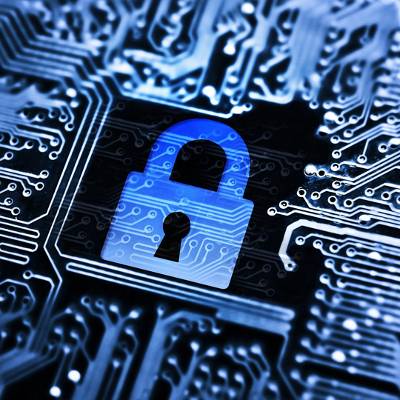 When a virus infects your computer, you may not know about it until it’s too late. Like a biological virus, the damage it does to your system can be minimized if it’s caught early on. Stopping a computer virus early is possible if you know what symptoms to look for. Is your PC infected? Here are four signs you’ve been hacked.
When a virus infects your computer, you may not know about it until it’s too late. Like a biological virus, the damage it does to your system can be minimized if it’s caught early on. Stopping a computer virus early is possible if you know what symptoms to look for. Is your PC infected? Here are four signs you’ve been hacked.
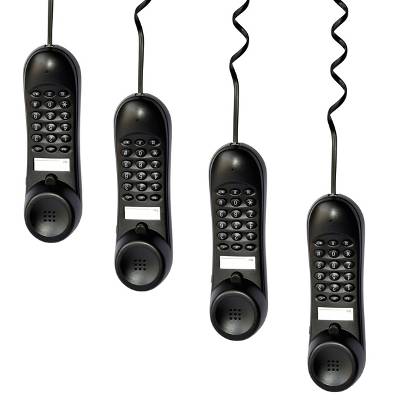 With all the attention given today to scams over the Internet, it’s easy to neglect classic scams like con artists using the phone to exploit people. You may think that you’re safe because you have a smartphone with caller ID, but thanks to new spoofing tactics, reliable defenses like caller ID can no longer be depended upon to safeguard you from telemarketer scum.
With all the attention given today to scams over the Internet, it’s easy to neglect classic scams like con artists using the phone to exploit people. You may think that you’re safe because you have a smartphone with caller ID, but thanks to new spoofing tactics, reliable defenses like caller ID can no longer be depended upon to safeguard you from telemarketer scum.
 If 2014 hasn't been a legendary year for data breaches yet, it certainly is now. Community Health Systems, a hospital network for over 206 facilities across the United States, has been the target of a data breach resulting in 4.5 million records being compromised by Chinese hackers, including Social Security numbers, birthdays, names, addresses, and telephone numbers.
If 2014 hasn't been a legendary year for data breaches yet, it certainly is now. Community Health Systems, a hospital network for over 206 facilities across the United States, has been the target of a data breach resulting in 4.5 million records being compromised by Chinese hackers, including Social Security numbers, birthdays, names, addresses, and telephone numbers.
 Do you see those black clouds culminating on the horizon? They represent the possibility that hackers will gain access to your cloud storage. Though it is protected a number of ways, it will not stop an experienced hacker. To them, your defenses are as transparent as those thin, wispy, cirrus clouds that are so welcome on a boiling hot summer day.
Do you see those black clouds culminating on the horizon? They represent the possibility that hackers will gain access to your cloud storage. Though it is protected a number of ways, it will not stop an experienced hacker. To them, your defenses are as transparent as those thin, wispy, cirrus clouds that are so welcome on a boiling hot summer day.
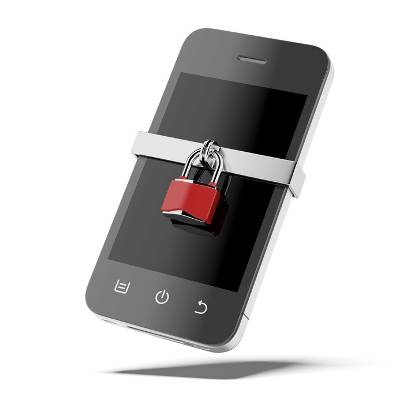 When it comes time to upgrade, many smartphone users will sell off their old device in hopes of making extra cash. However, if the phone's memory is improperly wiped, an experienced hacker can use advanced tools to recover sensitive data off the used phone. Let's talk about how this happens and what can possibly be recovered by a hacker.
When it comes time to upgrade, many smartphone users will sell off their old device in hopes of making extra cash. However, if the phone's memory is improperly wiped, an experienced hacker can use advanced tools to recover sensitive data off the used phone. Let's talk about how this happens and what can possibly be recovered by a hacker.
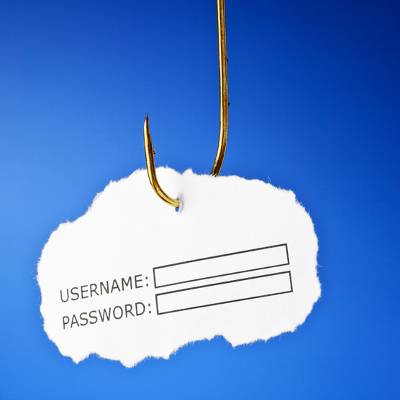 The Internet is a vast ocean filled with all sorts of different creatures. Many are harmless, like the bottlenose dolphin, but once in a while you will encounter an aggressive shark. But no matter how powerful or intelligent these creatures are, they still wind up flopping around on the deck of some fisherman's boat. Why? Because fishermen know what they're looking for and how to capture it. The same can be said about Internet phishers.
The Internet is a vast ocean filled with all sorts of different creatures. Many are harmless, like the bottlenose dolphin, but once in a while you will encounter an aggressive shark. But no matter how powerful or intelligent these creatures are, they still wind up flopping around on the deck of some fisherman's boat. Why? Because fishermen know what they're looking for and how to capture it. The same can be said about Internet phishers.
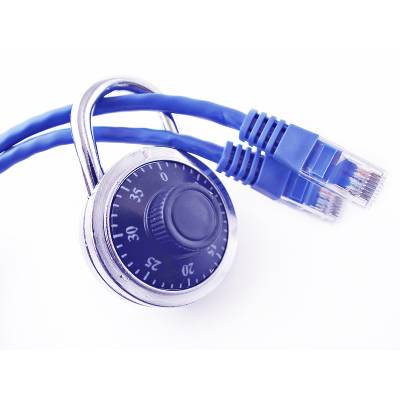 In today's connected home, Internet security needs to extend beyond the PC. Any device that's connected to the Internet needs to be password protected, secured with a firewall, and utilize available security apps. These precautions should be taken even with seemingly harmless devices like baby monitors. A family from Ohio recently learned this lesson the hard way.
In today's connected home, Internet security needs to extend beyond the PC. Any device that's connected to the Internet needs to be password protected, secured with a firewall, and utilize available security apps. These precautions should be taken even with seemingly harmless devices like baby monitors. A family from Ohio recently learned this lesson the hard way.
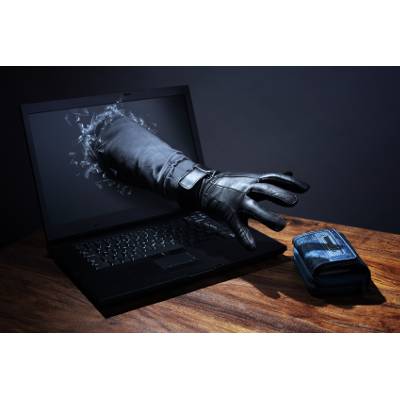 When you were a kid, did you ever ask your parents for a cool new toy only to have your request denied because you were in the habit of breaking everything? Your parents would point out your destructive habit and tell you, "This is why we can't have nice things." As an adult, the coolest toy is the Internet and hackers want to break it.
When you were a kid, did you ever ask your parents for a cool new toy only to have your request denied because you were in the habit of breaking everything? Your parents would point out your destructive habit and tell you, "This is why we can't have nice things." As an adult, the coolest toy is the Internet and hackers want to break it.
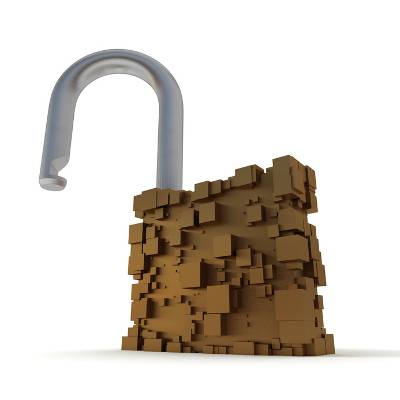 You're likely familiar with the various ways that hackers can steal your identity, but you may not be familiar with how hackers anonymously buy and sell people's personal information to interested parties. This is done through online ID theft services and a December hearing before the U.S. Senate highlights how one service was selling personal records on more than 200 million Americans!
You're likely familiar with the various ways that hackers can steal your identity, but you may not be familiar with how hackers anonymously buy and sell people's personal information to interested parties. This is done through online ID theft services and a December hearing before the U.S. Senate highlights how one service was selling personal records on more than 200 million Americans!
 The value of your email account cannot be understated. You may think less of your email inbox because there are so many other ways to digitally communicate, but to a hacker, your email is a goldmine of valuable information. You may use your email less than ever before, but that doesn't mean you can neglect email security.
The value of your email account cannot be understated. You may think less of your email inbox because there are so many other ways to digitally communicate, but to a hacker, your email is a goldmine of valuable information. You may use your email less than ever before, but that doesn't mean you can neglect email security.
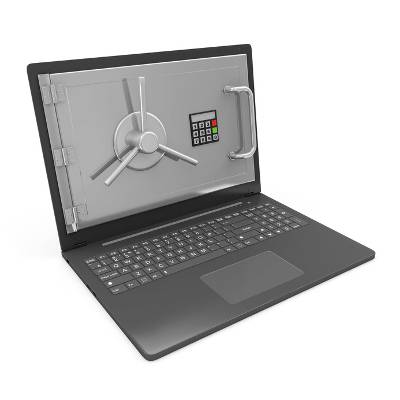 On December 3, 2013, security company Trustwave discovered over two million stolen user passwords for popular online services like Facebook, LinkedIn, Google, Twitter, Yahoo, and 93,000 other websites. There's a high probability that you use one of the services affected by the hack. Is your personal information compromised?
On December 3, 2013, security company Trustwave discovered over two million stolen user passwords for popular online services like Facebook, LinkedIn, Google, Twitter, Yahoo, and 93,000 other websites. There's a high probability that you use one of the services affected by the hack. Is your personal information compromised?
 The world you do business in is a pretty dangerous and messed up place, and things always seem to be getting worse. Thankfully, security technology is improving, which helps offset the risks of living in a perilous world. You can take advantage of these security improvements by installing intelligent surveillance cameras for your business.
The world you do business in is a pretty dangerous and messed up place, and things always seem to be getting worse. Thankfully, security technology is improving, which helps offset the risks of living in a perilous world. You can take advantage of these security improvements by installing intelligent surveillance cameras for your business.
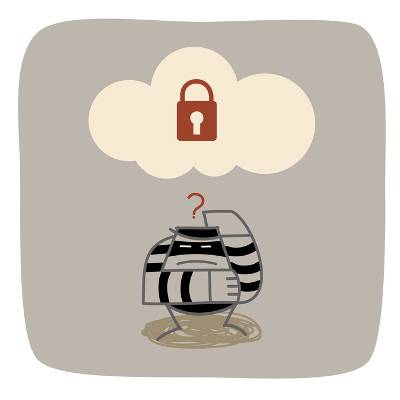 Recently, Adobe sent out e-mails and letters to users notifying everyone of a security breach. "The attackers may have obtained access to your Adobe ID and encrypted password." The obvious question here is, "How do I protect myself and my business from such attacks?" The unfortunate answer is you can't, but you can marginalize the impact by taking some common sense measures.
Recently, Adobe sent out e-mails and letters to users notifying everyone of a security breach. "The attackers may have obtained access to your Adobe ID and encrypted password." The obvious question here is, "How do I protect myself and my business from such attacks?" The unfortunate answer is you can't, but you can marginalize the impact by taking some common sense measures.
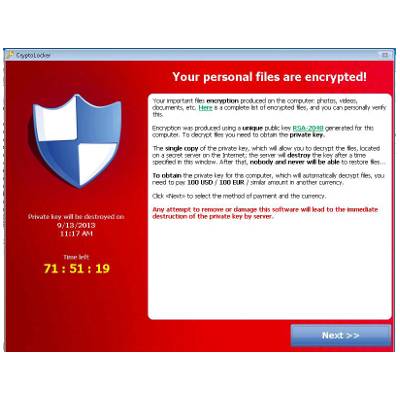 On September 10th, 2013, a new ransomware known as Trojan:Win32/Crilock.A began attacking computers all over the Internet, locking users out of their PCs and putting sensitive information at risk. If your computer gets it, then you're in for a world of hurt. Here are the details on what this virus does and what you can do to prevent it.
On September 10th, 2013, a new ransomware known as Trojan:Win32/Crilock.A began attacking computers all over the Internet, locking users out of their PCs and putting sensitive information at risk. If your computer gets it, then you're in for a world of hurt. Here are the details on what this virus does and what you can do to prevent it.
 If you use a smartphone to take personal pictures and post them to the Internet, then you may unknowingly be posting more about yourself than you want to, like where and when the picture was taken. This information in the hands of the wrong person can lead to dangerous consequences, like theft of your property, your identity, or even kidnapping.
If you use a smartphone to take personal pictures and post them to the Internet, then you may unknowingly be posting more about yourself than you want to, like where and when the picture was taken. This information in the hands of the wrong person can lead to dangerous consequences, like theft of your property, your identity, or even kidnapping.
 With an increase in Distributed Denial of Service (DDOS) attacks and packet flooding volume, its evident that hackers are using compromised web servers for their malicious activities. By infecting servers, these dastardly infiltrators create a Zombie command-and-control center to direct their malicious activities from.
With an increase in Distributed Denial of Service (DDOS) attacks and packet flooding volume, its evident that hackers are using compromised web servers for their malicious activities. By infecting servers, these dastardly infiltrators create a Zombie command-and-control center to direct their malicious activities from.
 If you have been following international news headlines with stories like WikiLeaks spreading confidential documents, and recent revelations about a US surveillance scandal, it kind of feels like we are in the middle of Spy vs. Spy. As nations look for stronger security solutions to protect themselves, Russia is looking to older technology to keep their communications safe.
If you have been following international news headlines with stories like WikiLeaks spreading confidential documents, and recent revelations about a US surveillance scandal, it kind of feels like we are in the middle of Spy vs. Spy. As nations look for stronger security solutions to protect themselves, Russia is looking to older technology to keep their communications safe.
 As smartphone ownership continues to rise (175 million cellphones sold last year in the US), so too does smartphone theft. Take San Francisco, CA as an example, half of all robberies reported last year were phone-related. To help curb this trend, crime fighting agencies are seeking help from phone manufacturers in developing a smartphone kill switch.
As smartphone ownership continues to rise (175 million cellphones sold last year in the US), so too does smartphone theft. Take San Francisco, CA as an example, half of all robberies reported last year were phone-related. To help curb this trend, crime fighting agencies are seeking help from phone manufacturers in developing a smartphone kill switch.
 You know that having a strong firewall is a key component to having strong network security, but do you how firewalls work? Firewalls take their name from the protective barriers that keep buildings and engines safe from fire. While it’s unlikely that your computer is in danger of incineration, a firewall does protect it from cyber-threats; here’s how!
You know that having a strong firewall is a key component to having strong network security, but do you how firewalls work? Firewalls take their name from the protective barriers that keep buildings and engines safe from fire. While it’s unlikely that your computer is in danger of incineration, a firewall does protect it from cyber-threats; here’s how!
Get the Knowledge You Need to Make IT Decisions
Technology is constantly evolving, and keeping up can feel overwhelming. Whether you want to understand cybersecurity threats, explore automation, or learn how regulations like PCI DSS impact your business, we’ve made it easy to access clear, straightforward insights on key IT topics.
Learn more about what NetWorthy Systems can do for your business.
NetWorthy Systems
701 W. Division Ave Suite 100
Orange, Texas 77630